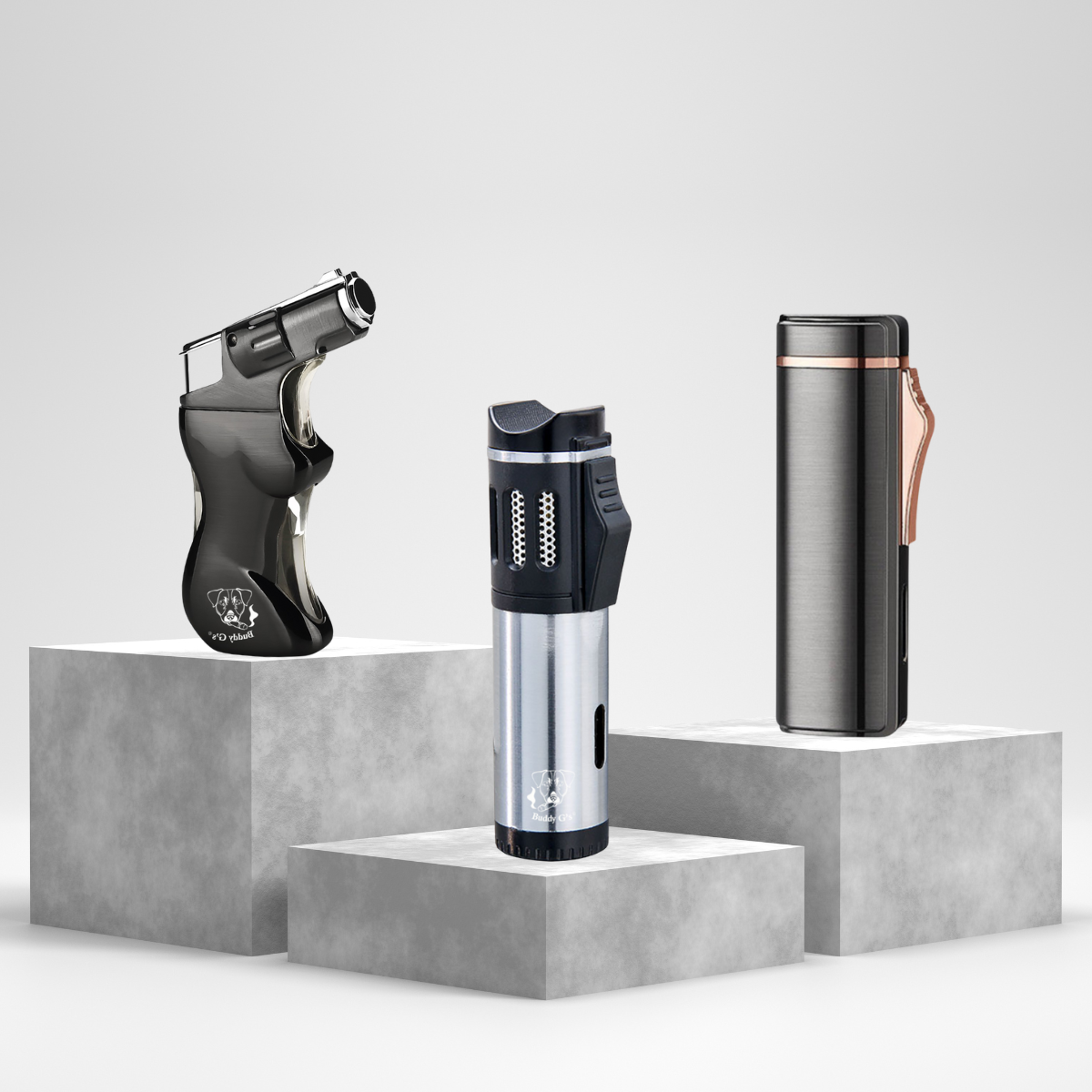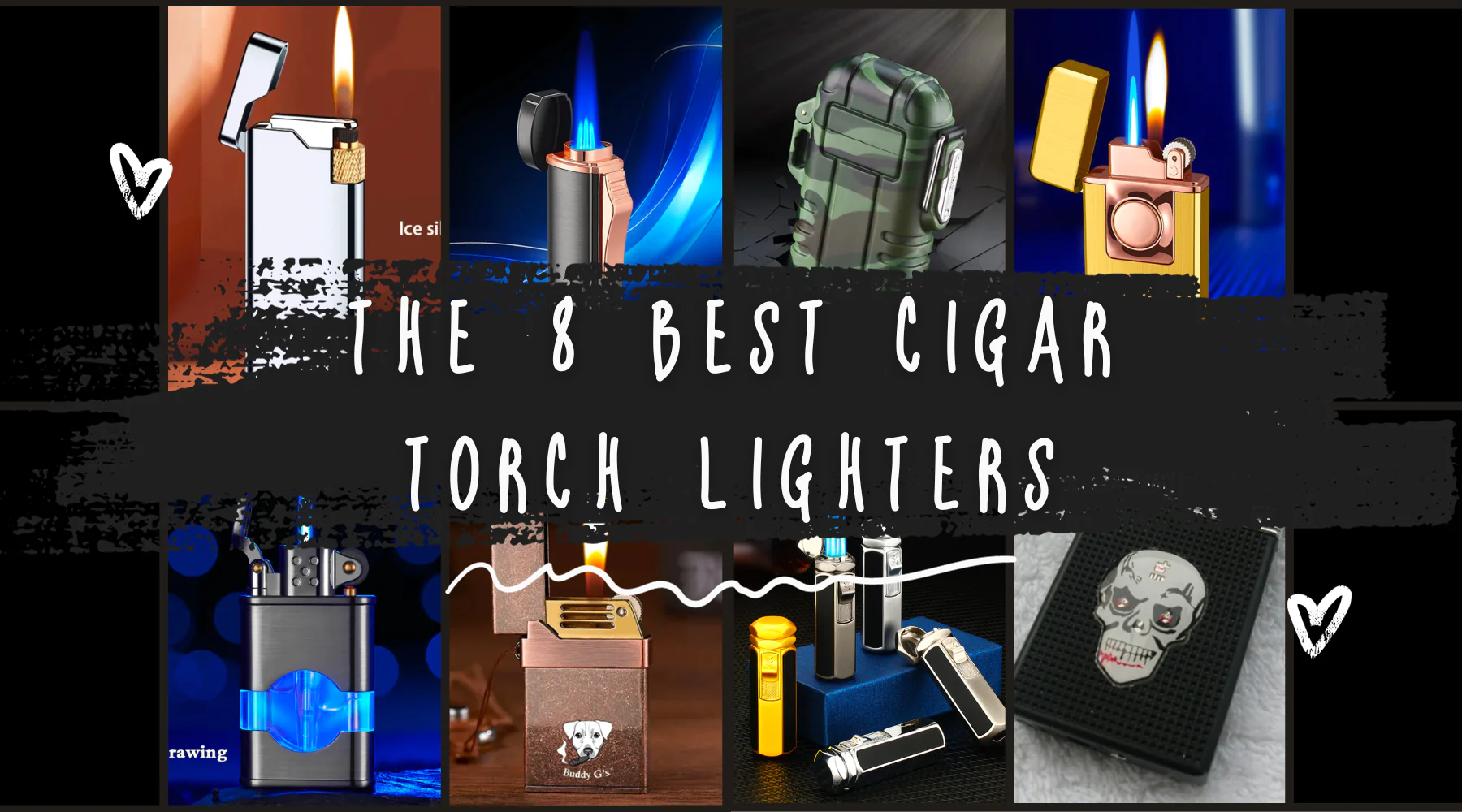
What is the difference between Fluid and Butane lighter?
In the world of lighters, the fuel they use plays a crucial role in their performance. Two common fuels, lighter fluid, and butane are often used, each with its set of characteristics. This blog will delve into the differences between these two fuels, shedding light on their properties and applications.
Understanding Lighter Fluid:
- Composition:
- Lighter fluid, also known as naphtha, is a hydrocarbon-based liquid. It is a refined petroleum product and, historically, has been a traditional fuel for various lighters.
- Odor:
- Lighter fluid often carries a distinct odor, which can be noticeable during and after use. Some users find this odor appealing, contributing to the overall experience of lighting a fire.
- Flashpoint:
- Lighter fluid has a low flashpoint, making it highly flammable. This characteristic allows it to ignite easily, contributing to quick and efficient lighting.
- Suitability:
- Lighter fluid is commonly used in traditional wick lighters, Zippo lighters, and fluid-fueled lighters. Its versatility makes it suitable for various lighter designs.
Exploring Butane:
- Composition:
- Butane is a hydrocarbon gas, commonly derived from natural gas or petroleum. It is stored in liquid form under pressure in canisters or lighters designed for butane use.
- Odor:
- Pure butane is odorless. To enhance safety, a distinct odorant is often added to butane, creating a noticeable smell in case of leaks.
- Flashpoint:
- Butane has a higher flashpoint compared to lighter fluid. This means it requires more effort to ignite but provides a more controlled and consistent flame.
- Suitability:
- Butane is widely used in modern lighters, particularly in torch lighters and refillable lighters. Its clean-burning nature makes it ideal for applications where odor might be a concern.
Comparing the Two:
- Safety:
- Butane is considered safer due to its higher flashpoint and the added odorant for leak detection. Lighter fluid, while effective, requires careful handling.
- Odor Preference:
- The odor of lighter fluid is part of its traditional charm for some users, while others prefer the odorless nature of butane.
- Application:
- The choice between lighter fluid and butane often depends on the type of lighter being used. Traditional lighters may favor lighter fluid, while modern torch lighters often use butane.
Both lighter fluid and butane have their places in the world of lighters, catering to different preferences and applications. Understanding the characteristics of each fuel allows users to make informed choices based on safety, convenience, and the overall experience they seek when igniting their chosen flame. Whether it is the nostalgia of lighter fluid or the modern efficiency of butane, both fuels continue to play a vital role in keeping the flames alive.




Laisser un commentaire
Ce site est protégé par reCAPTCHA, et la Politique de confidentialité et les Conditions d'utilisation de Google s'appliquent.